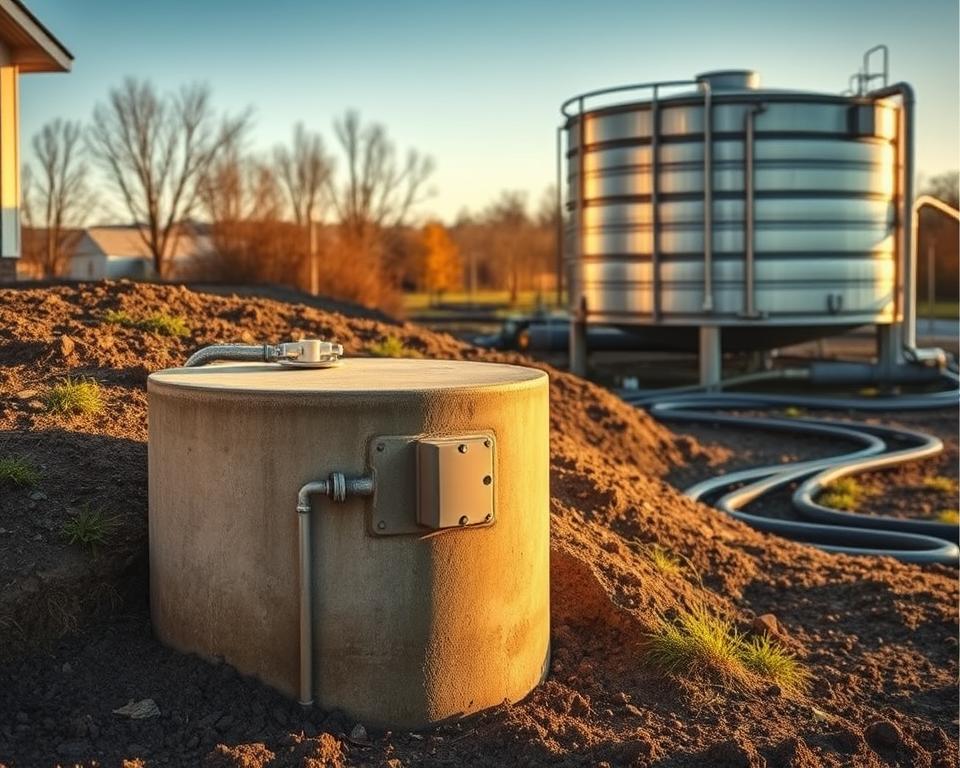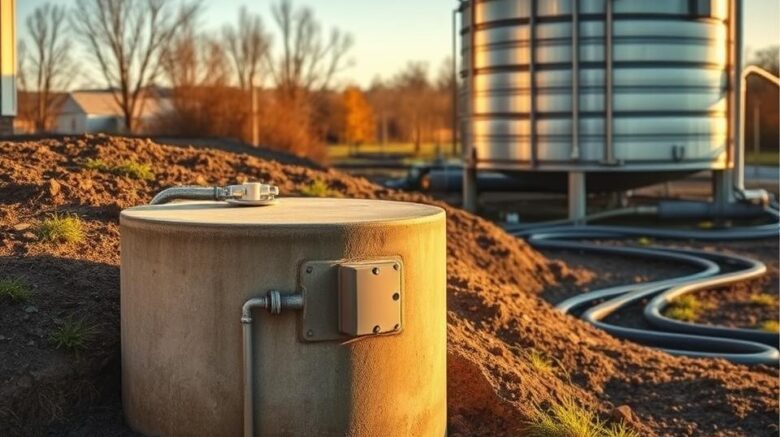Septic Tank Pump Replacement: A Complete Guide
Do you know the fallout of a Septic Tank Pump failure? For many, it’s a scenario that leads to major distress and surprise outlays. Realizing the call for immediate replacement is critical in keeping a smooth and hygienic Septic system. By scheduling regular inspections, including immediate repair needs, you prolong your system’s life while sidestepping pricey emergencies. Companies like All in Sanitation serve a crucial role in helping keep your Septic tank performing well. This guide seeks to give a comprehensive understanding of Septic Tank Pump replacement, detailing warning signs and maintenance tips for septic tank pumping service near me.
Major Insights
- Grasping the function of a Septic Tank Pump is essential for homeowners.
- Timely Septic Tank Pump replacement can cut future costs.
- Scheduled service and cleaning are critical to lengthening the lifespan of your Septic system.
- Skilled support can competently oversee Septic system Pump repair and maintenance.
- Identifying early signs of Pump failure can avoid expensive fixes.
Septic System Basics
A Septic system is vital for homes without access to municipal sewers. It treats and disposes of household wastewater safely. The Septic tank is central to this system’s process, playing a vital role in the process.
The Septic tank receives sewage, separating solids from lighter matter. This separation is critical for proper wastewater treatment. The cleaned water then flows to the drain field, where it experiences further purification by the soil, safeguarding groundwater.
Knowing how your Septic system runs can extend its life and efficiency. Regular upkeep is critical for the Septic tank and the system’s overall condition. Homeowners must learn about their system’s components to protect the environment and bypass pricey renovation.
Defining a Septic Tank
A Septic tank is a subsurface, impermeable container critical for household waste management systems. It’s necessary to understand the Septic tank’s main purpose: it handles sewage waste storage by breaking it down. This setup operates by isolating solids from liquids, enabling basic wastewater treatment and sanitation.
Its operation hinges on naturally occurring microorganisms that process waste. In areas without centralized sewage treatment, Septic tanks are irreplaceable. They retain sewage long enough for solids to sink, forming sludge. Meanwhile, liquid effluent rises to the top, setting the stage for filtration in the drainage field.
Keeping a Septic tank in proper order is critical for its reliability and longevity. Consistent servicing is key to avoiding problems like backups and overflows. These issues can result in high bills and pose ecological threats. In essence, Septic tanks play a significant role in keeping things clean and safe, especially in rural areas.

How to Tell a Pump Needs Replacing
Homeowners should be mindful of signs that their Septic tank may need a new Pump. A noticeable sign is experiencing foul odors by drains or in the outdoor area, suggesting a system failure. Experiencing regular or major sewage backups in your home demands immediate action to head off worse issues.
Noticing slow draining drains shows a potential problem. Household fixtures that take a long time to drain might mean a Pump failure or a clog calling for an expert’s evaluation. Additionally, spots of unusually lush vegetation in your yard could indicate trouble; this shows waste leakage, leading to overflow concerns.
To avoid large, pricey repairs, homeowners should handle these clues promptly. Scheduling routine checks and maintenance is critical for the Septic system’s peak function.
| Signs | Description |
|---|---|
| Foul Odors | Unpleasant smells around drains or yard suggesting system failure. |
| Sewage Backup | Regular sewage returns in sinks or toilets signaling potential Pump issues. |
| Slow Draining Drains | Fixtures draining slowly can indicate blockages or Pump malfunction. |
| Lush Vegetation | Areas of overgrowth near the tank indicating possible overflow. |
When to Change Your Pump
Knowing the frequency for replacing your Septic Pump is vital for a efficient Septic system. It’s recommended to have your system reviewed every three years. A skilled technician during these checks delivers information into how well your system functions.
Typically, service of the Septic tank becomes needed every five years. However, households with extensive use or a larger household might need more frequent servicing. Good maintenance of your Septic system prevents costly repairs and lengthens its lifespan. Professionals in Septic services can create a maintenance plan that aligns with your demand and the details of your system.
Staying ahead with Septic Pump replacements ensures your system’s efficient operation and shields your home investment. Periodic evaluations and service avoid unforeseen costs. They keep your Septic system working smoothly.
Pump Replacement Pricing
The Septic Pump replacement cost varies, influenced by many factors. Homeowners should expect paying from $500 to $1,300 for a new Pump. This price band reflects variations in the kind of Pump and material needs. It’s important to consider the Pump and Septic tank servicing costs for the setup and obligatory inspections.
Costs can also escalate due to complexities within the Septic system or local labor charges. Mandatory restoration, prompted by wear or harm, could raise the total outlay. In assessing financial estimates for Septic services, include charges for scheduled service, checks, and any sudden problems since these factors greatly help with maintaining your system’s longevity.
Allocating funds for regular Septic service diminishes the burden of unforeseen costs. Proactive budgeting helps owners in managing expenses connected with the Pump’s replacement and system upkeep.
Pump Replacement Procedure
The Septic Tank Pump replacement starts with a thorough inspection of the system. This initial check identifies any additional issues beyond the Pump itself. The faulty Pump is then removed safely and swiftly.
Installing the new Pump involves careful attention to connection security, guaranteeing no leaks. Professional Septic services see that the installation is properly executed, lowering future issues.
The final step is a thorough post-installation check. It confirms effective operation, offering homeowners peace of mind. With skilled support, the process is smooth, with little disturbance.
Septic Tank Pump Installation Best Practices
When handling Septic Pump installation, it’s important to follow best practices. Hiring skilled professionals guarantees compliance with local regulations. They skillfully handle the installation nuances, eliminating errors common in inexperienced setups.
Following strict Septic service standards is central for smooth system flow. Selecting appropriate components and high-grade materials extends the Pump’s life and enhances the Septic system’s efficiency. This meticulous attention elevates maintenance and overall performance longevity.
- Pick a well-reviewed service provider who specializes in Septic systems.
- Verify that all necessary permits and inspections are in place before work starts.
- Use Pumps that match the specific requirements of your Septic system.
- Schedule a pre-installation inspection to evaluate site conditions.
- Keep in mind the layout and flow of the Septic system during installation.
Following these guidelines leads to a trouble-free install. It also provides a dependable system for proper sewage treatment.
Upkeep Tips
Heading off high bills with your Septic system starts with regular maintenance. By observing easy guidelines, homeowners can sustain their Septic systems’ efficiency. Setting up consistent assessments is a good idea. It spots and rectify problems before they become severe.
It’s also vital to avoid flushing undesirable things down the drain. Oily residue, chemicals, and items that don’t break down can harm your system. Cutting water use during high-usage times can also improve system handling.
Engaging pro cleaning with entities like All in Sanitation is essential for Septic health. Being aware of what you ought and ought not do with your Septic tank can greatly increase its lifespan and protect your household environment.
Understanding Cleaning Services
Regular Septic tank cleaning is crucial for your system’s long-range function and efficiency. The process includes removing sludge, checking for damages, and confirming everything operates properly. These steps are vital to maintain smooth operation and prevent expensive fixes.
A thorough Septic maintenance plan should consist of periodic assessments and cleanings that match your specific needs. Homeowners must understand the importance of regular upkeep to avoid problems like backups. Bringing in pros confirms the cleaning is complete, supporting a safe household.
| Service Type | Frequency | Benefits |
|---|---|---|
| Pumping | Every 3-5 years | Avoids system failure and backups |
| Inspection | Annually | Identifies potential issues early |
| Maintenance | As needed | Extends the lifespan of the system |
Committing to consistent Septic tank cleaning lowers spending and extends your system’s life. It supports uninterrupted waste treatment. Starting today guarantees your Septic system’s efficiency for the future.
Picking a Pump Replacement Provider
Locating a dependable Septic service provider is essential when replacing a Septic Tank Pump. Initially, ensuring their certifications and licenses. Such credentials validate the company’s compliance with industry norms, key for a trouble-free replacement process.
Examining customer reviews is also a key step. Past feedback indicates service quality, aiding in the filtering process. Select companies with a steady track record of stellar work ethics and customer support.
Consider recommendations from your friends and neighbors too. Insights from friends and neighbors can point to top-notch Septic services in your vicinity. Always ask for detailed stories of their good results with these services.
Finally, compare the service scope and cost from various firms. A careful analysis ensures exceptional service and optimizes the value of your expenditure. Observing these guidelines assures your Septic system receives the best care it merits.
When to Consider DIY vs. Professional Help
Homeowners often debate whether to handle Septic issues by themselves or call in experts. DIY Septic maintenance is attractive for minor fixes and upkeep. For example, keeping an eye on levels or cleaning drains can be done independently.
However, recognizing when to hire Septic professionals is important for major faults. Heavy-duty repairs, replacing systems, or severe obstructions call for specific equipment and skills. Without the proper expertise, attempts to solve these problems can create ecological hazards and major destruction.
Figuring out between DIY and professional help calls for considering the job’s complexity. Presented below are examples showing when DIY is appropriate and when professional Septic services are required:
| Situation | DIY Feasibility | Need for Professional Help |
|---|---|---|
| Routine maintenance (e.g., tank level checks) | Yes | No |
| Minor clogs in drain fields | Yes | No |
| Major Septic Tank Pump failure | No | Yes |
| Complex sewage backflow issues | No | Yes |
| Regular system inspections | Possible DIY | Yes for thorough checks |
Making informed decisions on these matters secures safety and efficiency. Opting properly protects as well as the Septic system but also avoids sudden charges.
Bringing It All Together
Grasping the workings of your Septic system is important for its efficient oversight and your home’s smooth running. Identifying early indicators of issues heads off pricey repairs and protects the system’s health. This preventive approach supports the environment and raises your property value.
To preserve your Septic system in optimal condition, emphasize maintenance. This means routine checks and timely professional Pumping. This minimal cost secures your home’s safety and your wellbeing. Your Septic system functions best with adequate service.
Our team at All in Sanitation is devoted to offering top-notch Septic care. We deliver the skill required to ensure your system working optimally, protecting your home investment over time. With our commitment to reliable support and reliability, we’re ready to meet your Septic maintenance needs.
